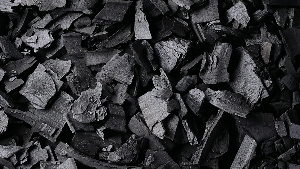A delegation from Tanzania made up of government institutions is in Ghana to understudy the country’s carbon market operations.
Ghana is one of the few countries in Africa to have developed a comprehensive carbon market operation, with three bilateral cooperative agreements with Switzerland, Sweden and Singapore, all aimed at unlocking investments to create green businesses and provide jobs.
The Tanzania delegation will be in the country for four days, during which it would have in-depth discussions on the Nationally Determined Contributions and carbon markets, Article 6 policies and regulations, carbon market national arrangements, project sourcing, finance, and investments.
Dr Kingsley Krugu, the Acting Executive Director of the Environmental Protection Agency (EPA), who welcomed the delegation at a brief ceremony in Accra, said the visit signified a crucial step in the ongoing south-south knowledge exchange focused on Article 6 implementation.
He assured the delegation of Ghana’s readiness to share expertise on the carbon market and its related programmes.
The two countries, he noted, were vulnerable to impacts of the changing weather pattern – in the form of drought, flood, increased temperature and had the challenges of inadequate finance to adapt to the climate crisis.
Dr Kurugu said, “The time has come for Africa countries to share ideas and take steps to deal with its developmental challenges like climate change, impacts, biodiversity losses and pollution in our own context because we understand it better.
“Often, it used to be north – south, thus somebody coming in as a big brother or a consultant to tell us what to do rather than brothers sitting to solve problems…It is in our best interest as a continent to increase south-south cooperation.”
Mr Ransford Sakyi, Deputy Executive Director for Operations at the EPA, said Africa must have a common objective to overcome its challenges imposed by the colonialists and called for unity.
“No one can tell our stories better than ourselves and also solve our problems better than ourselves,” he said.
Mrs Esi Nerquaye-Tetteh, the Deputy Executive Director for Technical Services, EPA, said the two countries shared many things in company and that it was not out of place to share experiences.
“This is in the interest of both countries,” she said.
Dr. Ashatu Kijazi, the Minister of State, Vice President Office, Union and Environment of Tanzania, said that Dr Kwame Nkrumah, Ghana’s First President and Mr Julius Kambarage Nyerere, the first President of Tanzania, fought for political independence.
“We are trying to move it forward but ours is the fight for economic independence. You are our best choice, and we are ready to learn from you because you are far ahead of us,” she said.
Dr Kijazi said Tanzania had developed the requisite regulation and set up a national carbon monitoring centre under the office of the Vice President.
She noted that their learning visit would help to review their carbon trading guidelines, track sales to ensure transparency, attract investment to finance project development and mainstream climate change and its associated benefits into sectors of the economy.
Ghana has already established a Carbon Market Office (CMO), a secretariat to provide administrative and technical services to the public and support the implementation of the Ghana international carbon market and non-market approaches framework.
The EPA’s Climate Change Unit hosts the CMO, which performs the functions assigned under the framework, including implementing the policies, rules, and guidance on transactions, by providing targeted supports for mitigation activity sourcing and matchmaking, activity development services, MRV and accounting, registry operations, creation, and transfer of ITMOs, reporting & corresponding adjustment.
The CMO was established under Ghana’s carbon market framework and mandated under the EPA Act490.
Business News of Wednesday, 24 July 2024
Source: GNA













